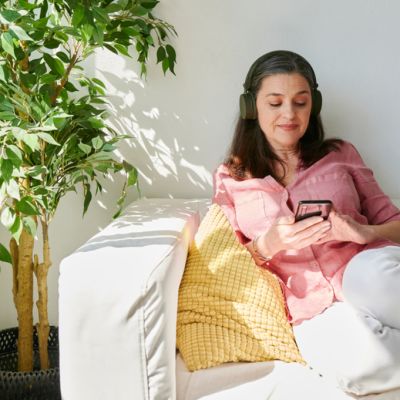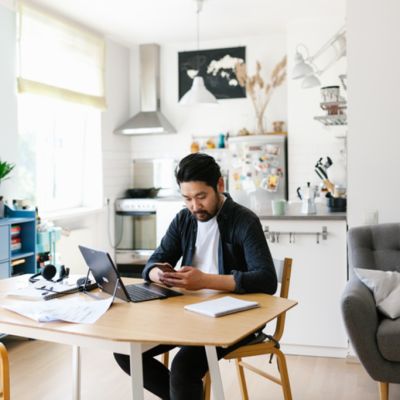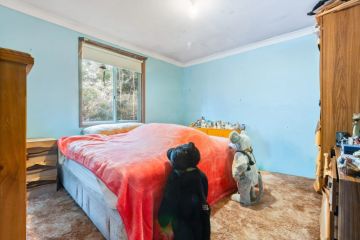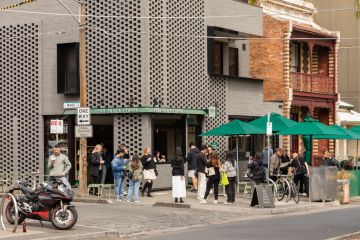How to set up your home office for the long haul
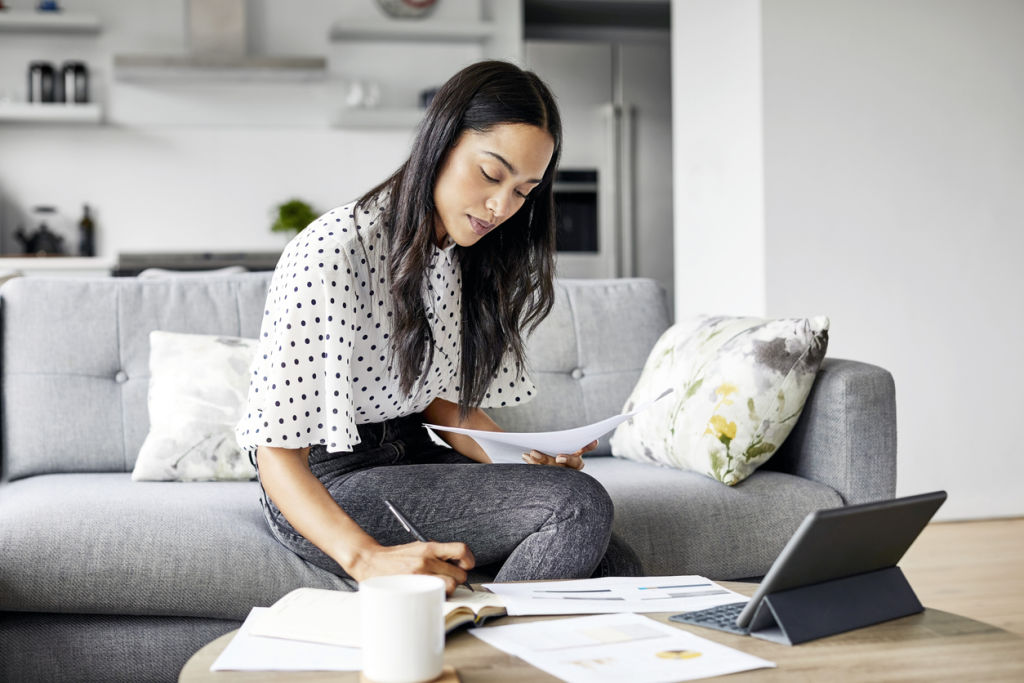
Remember when the pandemic hit and we thought working from home would be a temporary phase?
Well, it may be 2021, but for many of us, there’s no sign of returning to the office any time soon.
Whether you’re loving the freedom, or dreading another year switching between the kitchen table and the couch, some easy changes can make your home workspace more pleasurable and productive.
Set up a dedicated work area
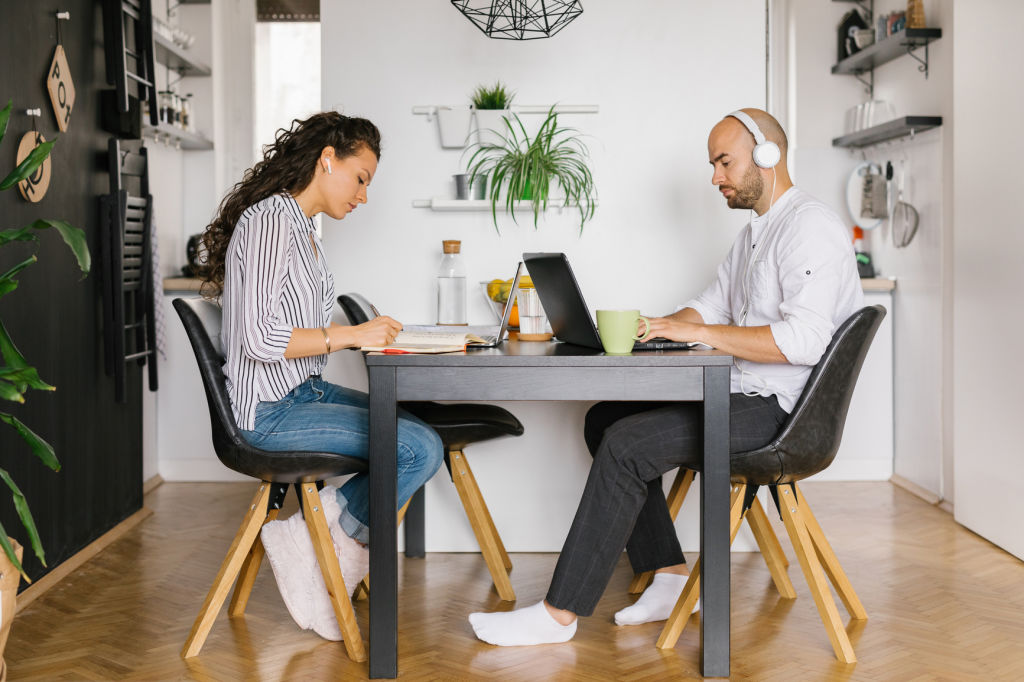
Liz Wiggins, of Feng Shui Living, spent eight months working from the dining table in her Sydney apartment last year – opposite her husband.
“What I found was there was no separation from living and working, especially when you’ve got an open space or plan area,” she says.
“I found I’d sit on the lounge [after work hours] and then I’d just look over and think, ‘I may as well just sit at my computer and do work.’”
When her daughter moved out, the couple swiftly converted her bedroom into a home office, which Wiggins says works much better than being in the living room.
But if you can’t…
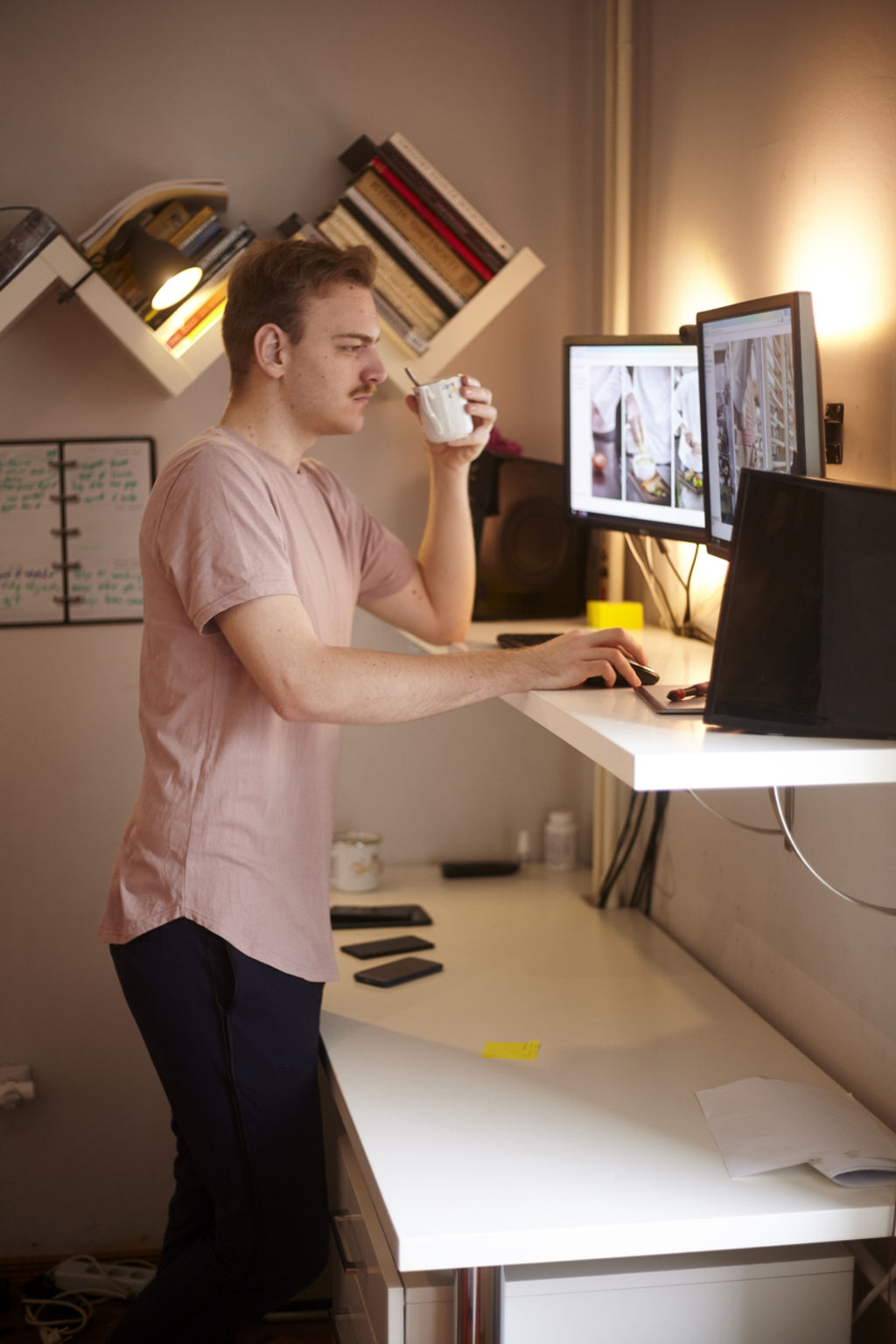
While tap-tapping from the dining table, Wiggins got into the habit of storing away their computer equipment, including four monitors, each weekend.
“I know it takes you half an hour to pack up, which is a bit of a pain, but it does help give a feeling of being able to relax on the weekends.”
Another option might be a temporary folding screen that hides your work equipment while you’re relaxing, she says.
Occupational therapist Fiona Thomas says if you don’t have a dedicated workspace, the kitchen table can be OK, provided you have an adjustable chair.
You could also use an upturned laundry basket to create a sit-stand option, she says.
“But if you are going to work in the long term from home, having a dedicated space will be less stressful.”
Treat your desktop like prime real estate
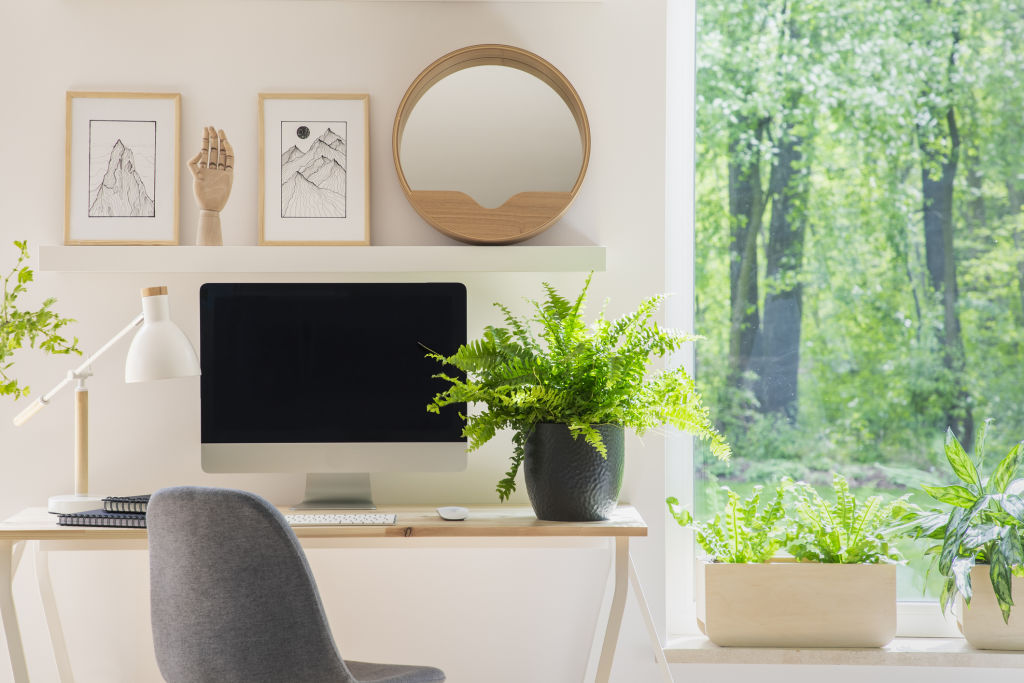
Has your desk turned into a shemozzle? Professional organiser Nicola Evans, of Sort It Now, suggests starting afresh.
“First, remove everything and then put back only the things you need on a daily basis – pens, notebook, laptop, inbox, action files, ready reference material,” she says. Where you can, minimise paperwork.
Evans says items you don’t need immediately can be stored in desk drawers or filing cabinets.
Get a better storage system
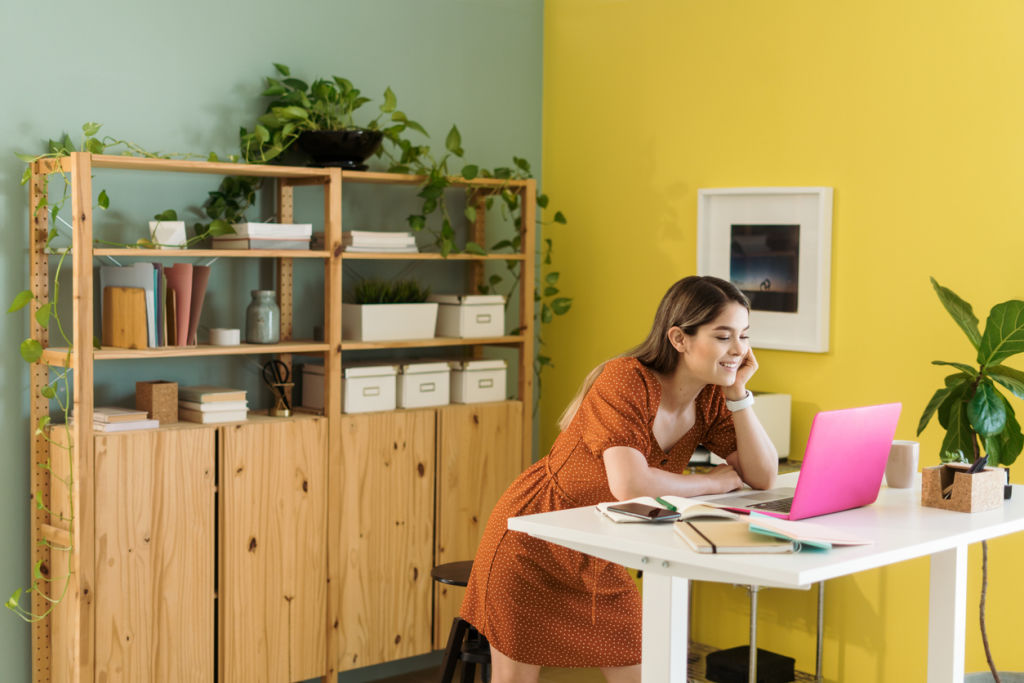
Whether it’s paper or digital files, Evans says it’s important to create distinct folders. “Have your active paperwork in one sort of place, and not confused with your household bills or whatever that might be.”
Evans favours vertical systems, such as racks, “because horizontal piles kind of grow”.
Colour coding can help, as can choosing storage that’s aesthetically pleasing.
For those without a dedicated desk, a small trolley or cart, an expanding file that’s easily packed away, or storage cubes are easy solutions.
Wiggins says the most important thing is clearing up the clutter. “If you’re not organised, it’s like: messy desk, messy mind.”
Improving your ergonomics
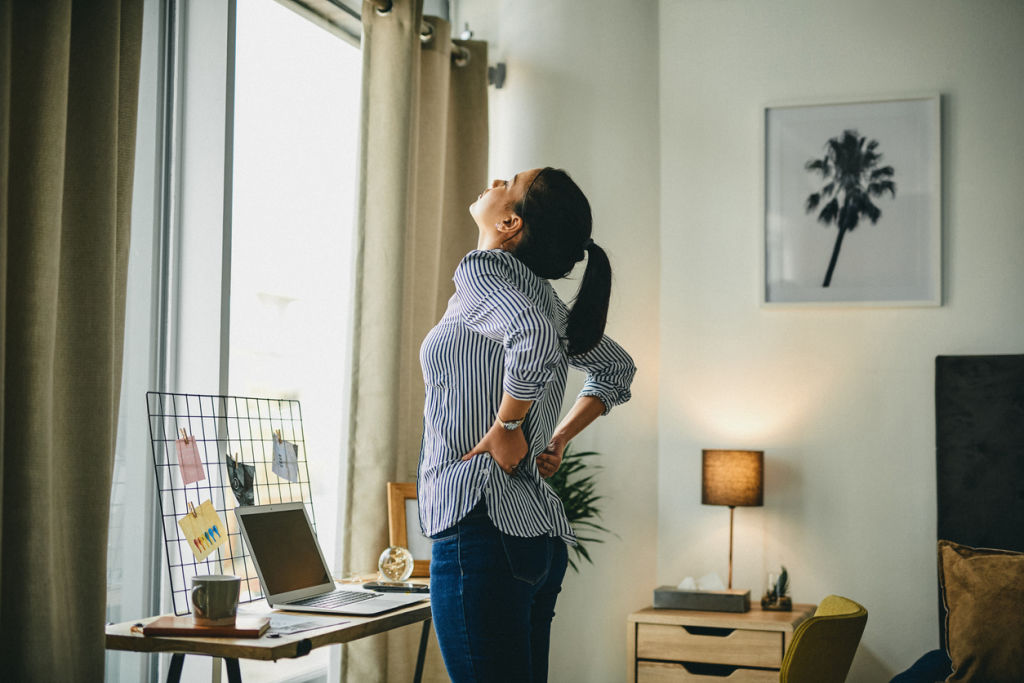
Thomas says most bodies can adjust to changed postures or movements in the shorter term.
“However you have decided to work from home on a more permanent basis it is worth reconsidering your set-up with a long-term viewpoint,” she says.
This could involve buying a better desk or chair, tweaking your set-up and thinking about how you work best.
Thomas says these changes will help minimise musculoskeletal discomfort, and issues such as fatigue, eyestrain and motivation or concentration.
Bring on the productivity
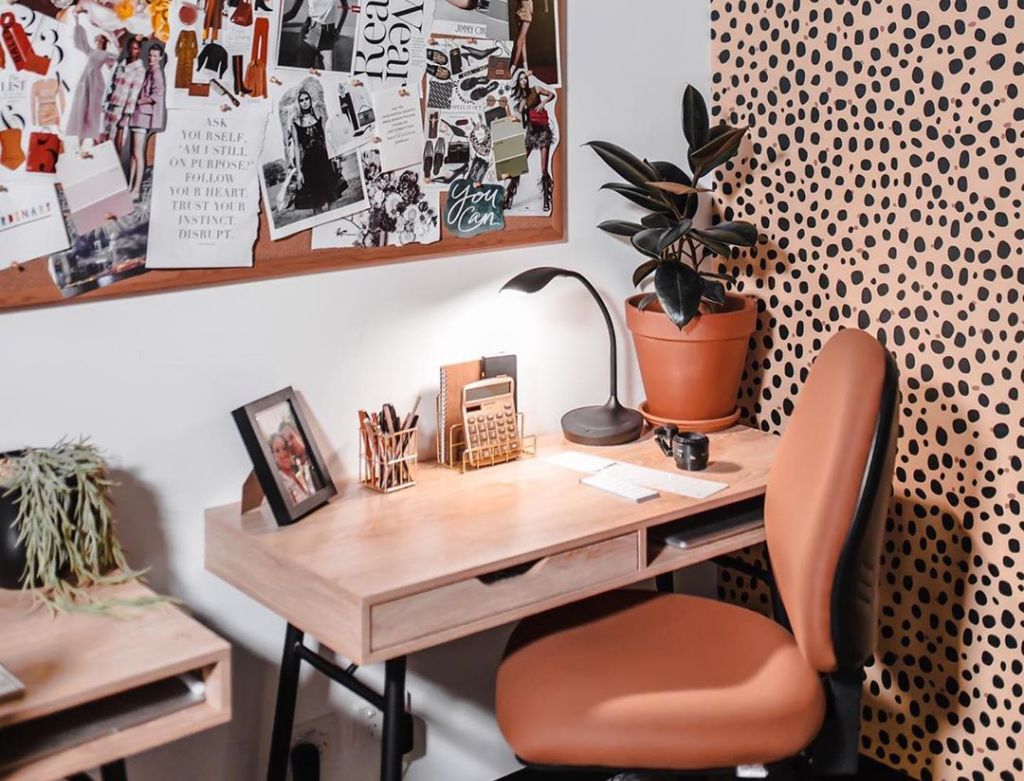
It takes a great deal of mental energy to maintain focus and executive function, Thomas says.
“If we are working in an environment that makes us uncomfortable, or has distractions or limited opportunities for movement, then the brain has to spend some of its energy in dealing with these issues, taking away from the focus of our attention.”
So make sure your home workspace has as few distractions as possible, but that it also provides inspiration and stimulation through factors such as good light and personal items such as photos or a scented candle.
We recommend
We thought you might like
States
Capital Cities
Capital Cities - Rentals
Popular Areas
Allhomes
More
